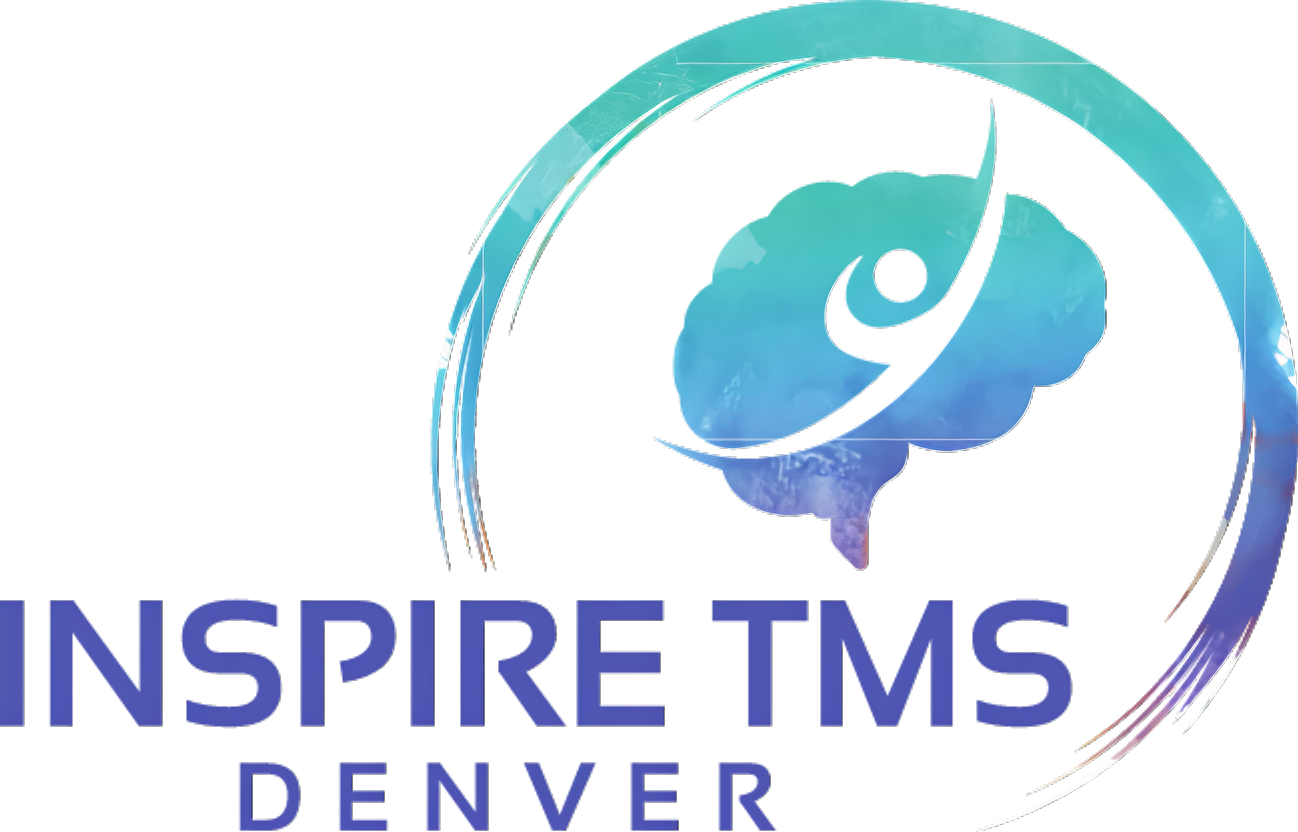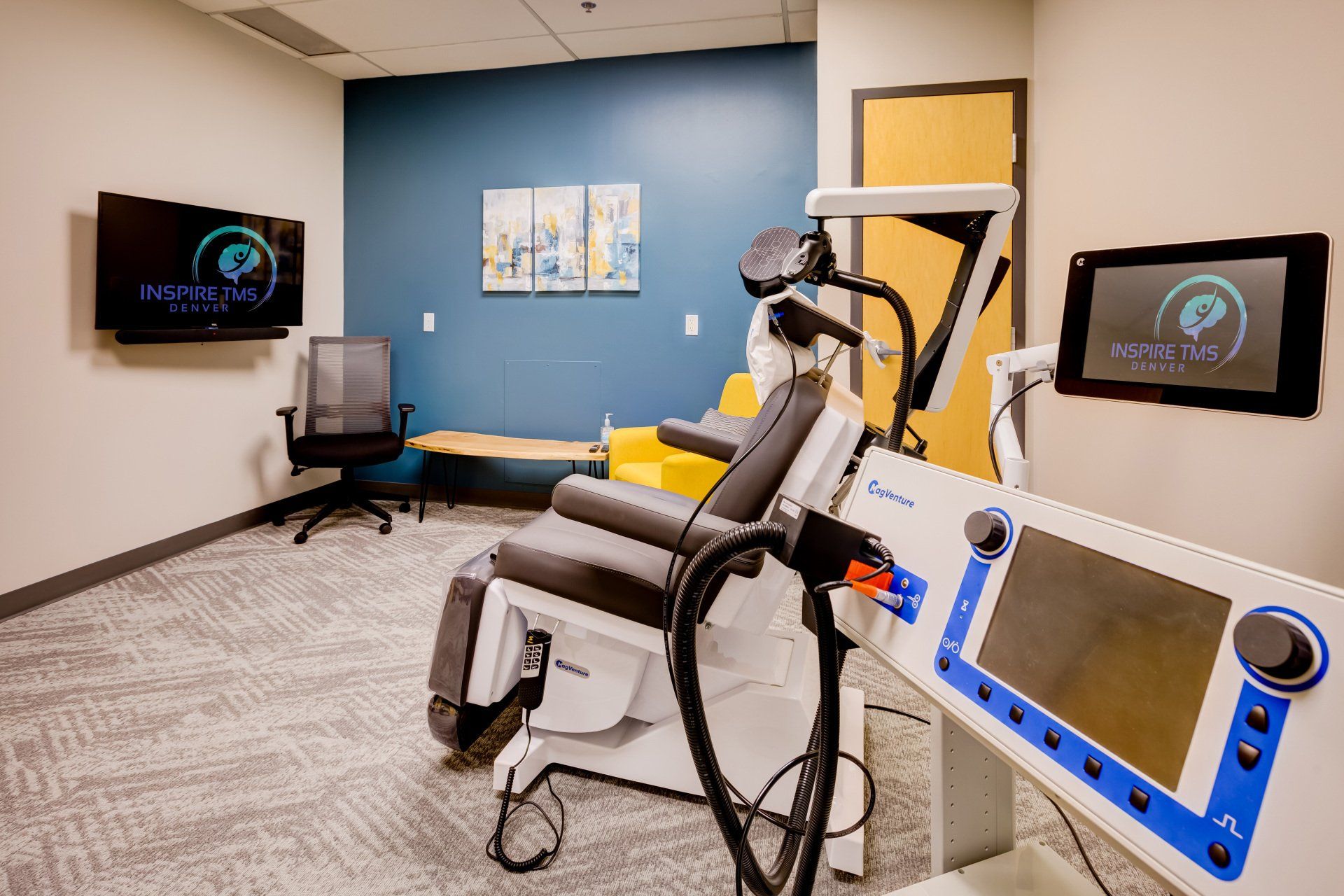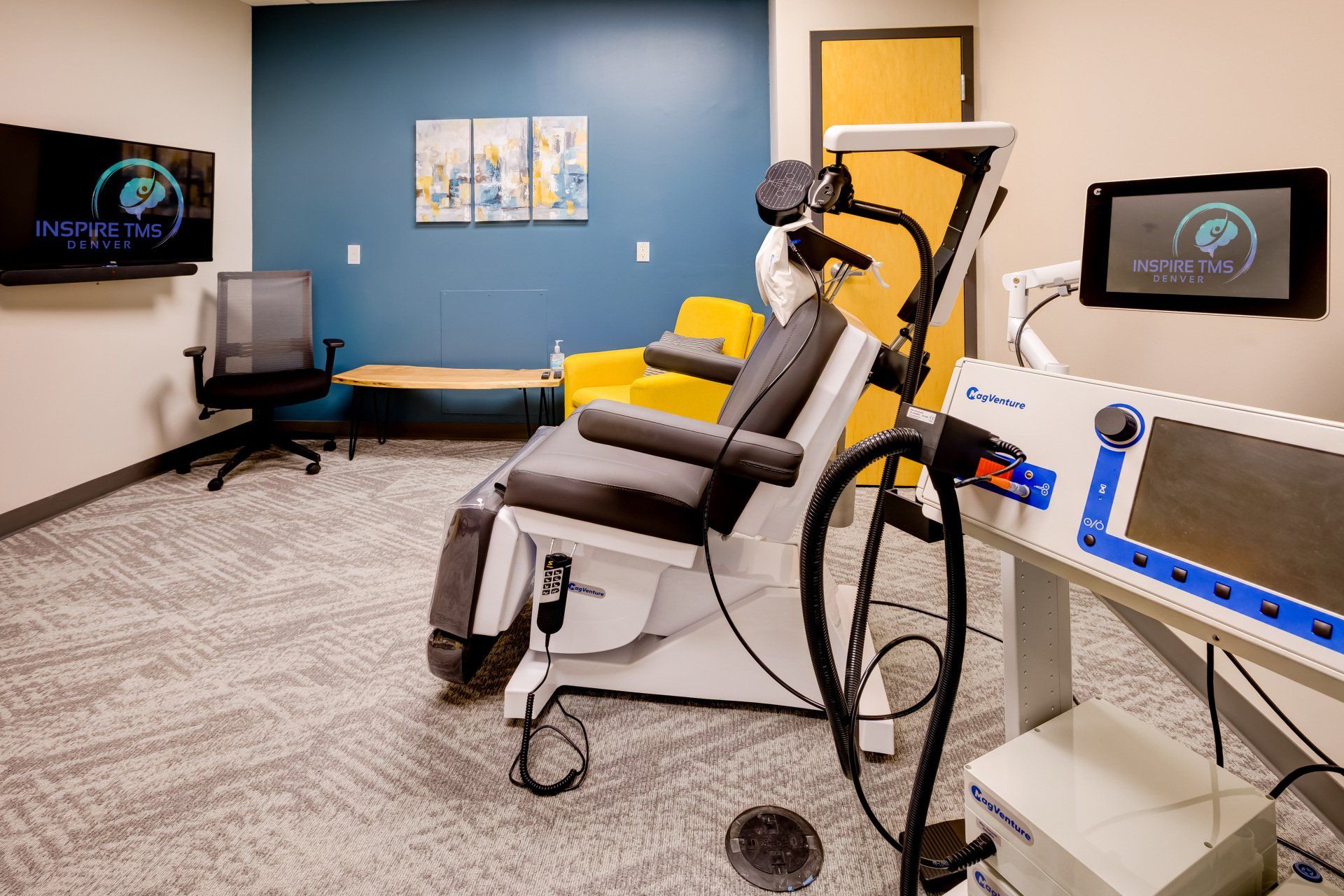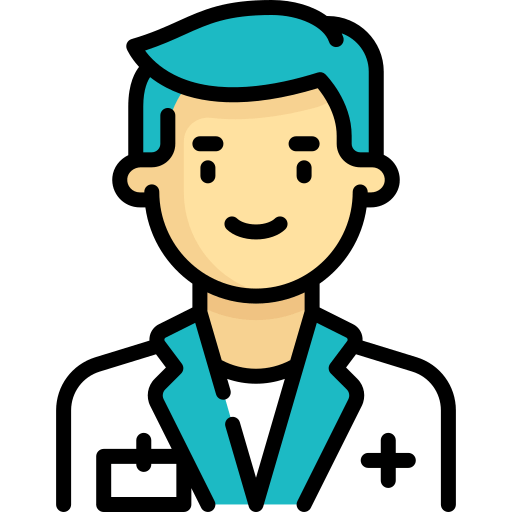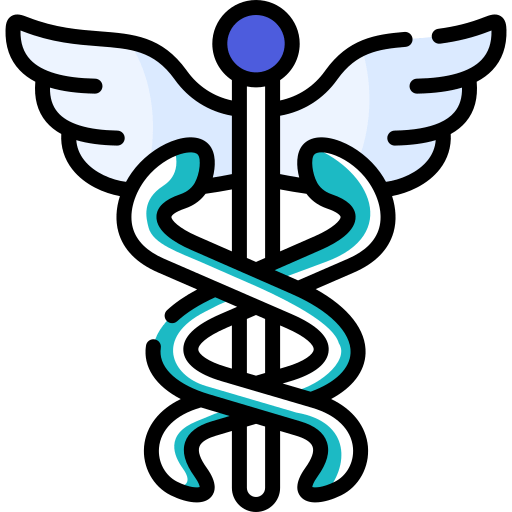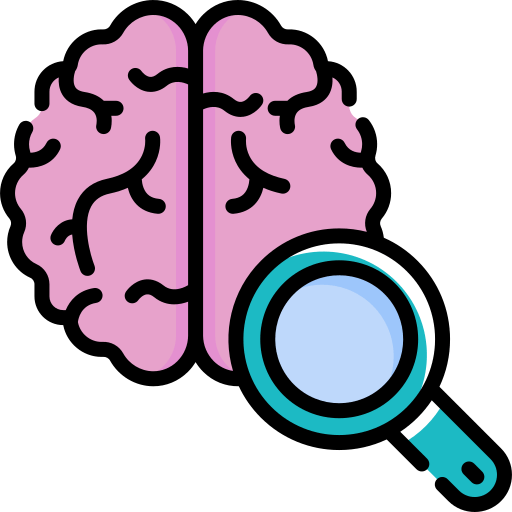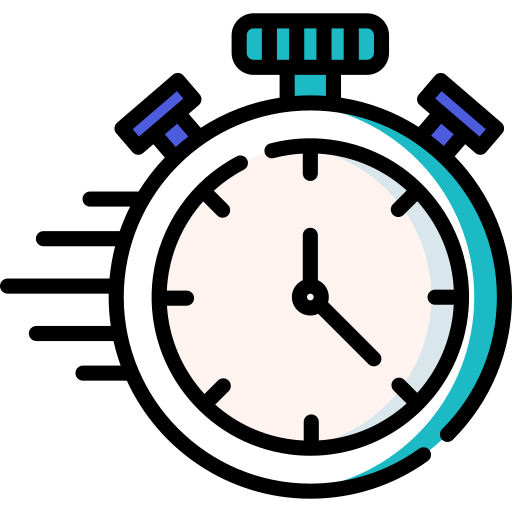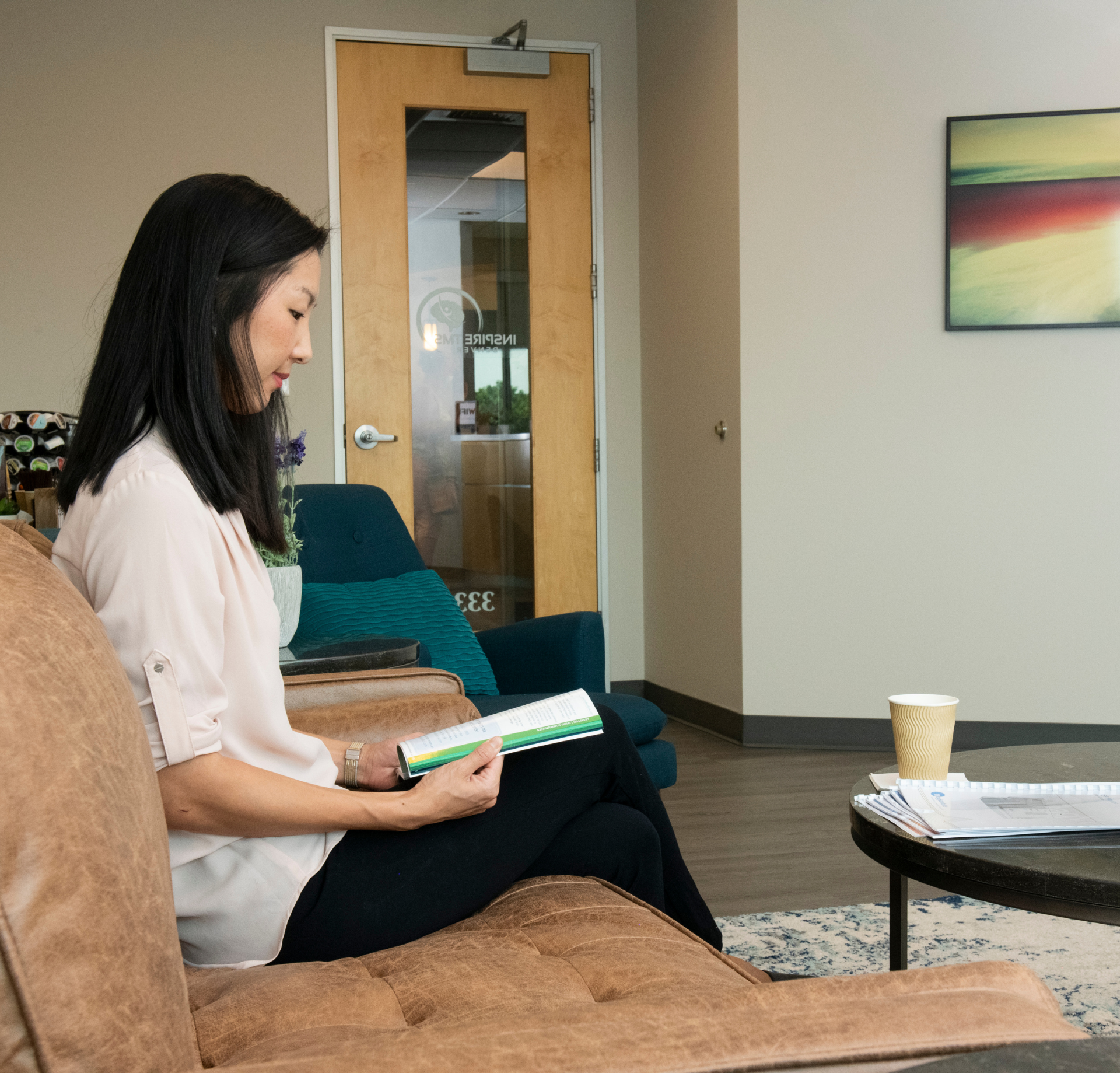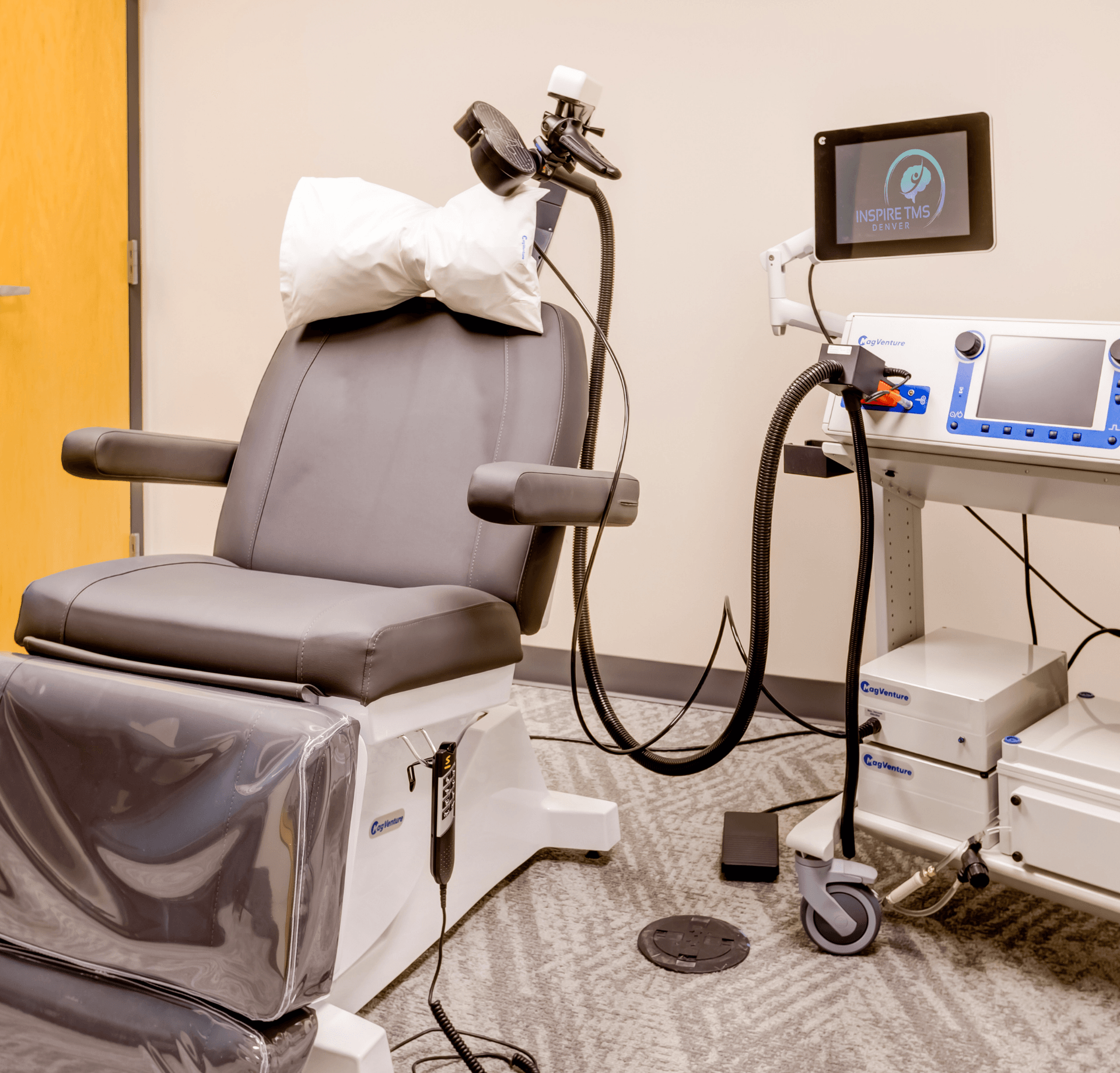LOCATION
340 East 1st Avenue, Suite 333 Broomfield, CO 80020
PHONE
720-446-8675
BUSINESS HOURS
- Mon - Fri
- -
- Sat - Sun
- Closed
Response Rates
10,000+ Treatments Completed
TMS Therapy Pros and Cons
Too good to be true? Compare the many ups and the few downs of Transcranial Magnetic Stimulation.
Want to know more about TMS? Check out this in-depth guide to TMS therapy with transparent and easy to understand explanations about TMS processes, protocols, and treated conditions.
TMS Therapy Pros & Cons
Too good to be true? Compare the many ups and the few downs of Transcranial Magnetic Stimulation.
Want to know more about TMS? Check out this in-depth guide to TMS therapy with transparent and easy to understand explanations about TMS processes, protocols, and treated conditions.

Too good to be true? Compare the many ups and the few downs of Transcranial Magnetic Stimulation.
TMS Therapy Pros & Cons
Want to know more about TMS? Check out this in-depth guide to TMS therapy with transparent and easy to understand explanations about TMS processes, protocols, and treated conditions.
Is TMS the Right Choice For Me?
Before proceeding with the pros and cons of TMS therapy, know that Inspire TMS Denver is here to help. We offer free phone consultations to help determine if TMS treatment is the right choice for you and to ensure that you are well informed as to treatment expectations. The bullet points to follow can hopefully help guide in this decision process. Let’s start with the largest Pros for treatment:
In This Guide
TMS Pros
High Success Rate:
The success rate for TMS therapy is quite high and seems to be steadily improving with advancements in technology and treatment protocols. The primary indication for TMS is Treatment Resistant Depression. This typically describes failure to at least 2 antidepressant medications and therapy. When looking over all the studies and current real-world data from large patient registries, the following are obtainable with TMS:
These are very good results for difficult to treat depression. As noted, most patients utilizing TMS for depression are treatment resistant. This typically involves two or more medication failures. Looking at a patient trying their third medicine due to two previous failures, response and remission rates are only 15-20% at best. When needing further medication trials, the rates only drop further from here.²
Read More: How does TMS work? →
Prolonged Response:
In addition to the initial high response and remission rates, we also see better long-term rates with TMS treatments. Similar to initial response rates, approximately two-thirds of patients at one year follow up continue to see response to treatment. And those that relapse into depression, tend to re-respond very positively to repeat TMS therapy - with more than three-quarters showing repeat response.³ Looking at similar rates for antidepressants, we see the opposite. After one year, only one-third of patients trying their third medication will remain free from depression with two-thirds relapsing back into depression. Reintroduction of medications then only results in 10% or less chance for response and remission.
Read more: TMS therapy success rate and TMS vs medication →
Safe and Non-Invasive:
TMS treatments involve the use of magnetic fields that cross over the scalp and skull safely to change electrical conductivity in the brain. The stimulation only penetrates a few centimeters into the brain, but this influences connected brain circuits deeper in the brain that cause depression and anxiety. The treatment is hence quite targeted and local.
Unlike ECT treatment which actually causes seizures as a means of therapy, TMS is targeted and does not use seizure as a therapeutic treatment. The risk of seizure in the general population is extremely low. Studies have pointed to seizure risk as 1 in 30,000 or more TMS treatments. Seizures that have rarely occurred in the clinical setting are self-limiting and can be managed by staff safely. The treatment does not require anesthesia and can be performed safely and comfortably in an outpatient clinic. There is also no recovery time following TMS therapy, unlike with ECT, where a postictal (post-seizure) state occurs involving general fatigue and memory loss. With TMS, prior to, during, and after treatment, patients are awake, alert, and capable of going about their normal day-to-day activities. There are no driving restrictions following treatment or limitations of any sort.
Read more: TMS vs ECT →
No Systemic Side Effects:
Because TMS is so targeted, it avoids the common side effects that can occur with antidepressant medication. TMS will not cause weight gain, sexual side effects, gastrointestinal problems, fatigue, or any of the other side effects that can typically be seen with antidepressants. There can be a slight prickling sensation at the treatment site or a mild headache during the first few treatments in a small portion of patients. These side effects typically resolve after the first week of treatment and can be minimized with the use of a gradual increase in treatment intensity and/or over-the-counter pain medication. Inspire TMS Denver is well versed in addressing these limited side effects. After this, there are NO side effects!
Read More:
TMS vs medication →
Availability:
There are very few contraindications to TMS treatment. TMS is contraindicated for a few populations:
*There are currently studies underway to verify that TMS is safe and effective in pregnancy.*
Cost:
Because of the proven success and safety of TMS, it was first FDA cleared in 2008 and is now accepted by all insurances. You may have additional copays for treatment, but Inspire TMS Denver does the legwork with your insurance to ensure that you are aware of all costs associated with treatment. We also work tirelessly to ensure that treatments are covered by your insurance and have a dedicated billing department with years of experience in TMS. An entire course of TMS therapy is not inexpensive, but cost-effectiveness studies have shown that it can be more cost-effective than repeated medication trials in the long run.
Learn more about this in TMS vs medication in the section on cost.
The primary indication for TMS is Treatment Resistant Depression. As many who have suffered from depression can attest, however, depression often occurs with additional mental health symptoms. Anxiety, Insomnia, PTSD, Obsessive thoughts and behaviors, and many other symptoms and conditions can also be treated with TMS. At Inspire TMS Denver, we do not charge additional fees for these symptoms. We utilize protocols that cater specifically to the patient to ensure we are leveraging all that TMS can offer. We also offer competitive pricing for patients seeking treatment outside insurance coverage or for those where insurance isn’t approved. We offer affordable maintenance treatment cost as well for those that need periodic TMS treatment to keep depression and associated symptoms at bay.
Quick Treatments:
TMS therapy is a time commitment (more on this below in Cons), but with the latest technology, patients can get in and out of the office quickly to get back to their daily lives. The newest TMS treatment is called intermittent Theta Burst Stimulation - iTBS. This protocol has shortened treatment time to just three minutes. In the past, treatments would take 19-40 minutes. We offer theta burst stimulation at Inspire TMS Denver and use the device that was first granted FDA approval for use of this treatment in 2018. Inspire TMS Denver takes great pride in getting patients in the chair promptly, receiving treatments right away, and getting back to their busy lives. We use this treatment for maintenance treatments as well to save time and cost to patients.
Read More: Theta Burst Stimulation →
TMS Cons
Time:
TMS is a time commitment. A full course of TMS typically lasts 6 weeks with a 3-week taper following and requires coming in five days per week to receive treatment. The good news is that TMS therapy is an investment that reaps great dividends, however. What is more important than your mental health and well-being? As many with depression can certainly attest, there are no easy roads to recovery. Why not invest in treatment with the highest likelihood for success? Many patients also find the process of coming in each day supportive and helpful for keeping them focused on recovery. Advancements in treatment have also led to rapid three-minute treatments with iTBS as noted and numerous studies are pointing to great possibilities with Accelerated TMS as well. With Accelerated TMS, the entire course of therapy can be condensed into just five to ten days.
Read More: Accelerated TMS therapy →
Insurance Prior Authorization:
Insurance companies have different criteria for previous treatment that must have been tried prior to authorizing TMS. For some, this is failure to four medication trials or intolerance to four medications and course of counseling. Some only require two med failures, however. The good news is that Inspire TMS Denver is well versed in this process and has a great prior authorization and billing team that is familiar with each insurer's requirements and how to effectively and consistently get authorization for treatment.
Read More:
TMS therapy cost →
Mild Temporary Side Effects:
Some patients report mild headaches and scalp discomfort or a prickling sensation during the treatment. This can be treated with a standard over-the-counter analgesic and usually disappears after the first few sessions. The stimulation intensity can also be lowered and gradually titrated up to the target dose over the first week of treatment to provide time to adjust to the stimulation. This is very rarely a barrier to treatment and some patients have actually fallen asleep during treatment. This isn’t a goal for treatment as we want the brain in an awake and resting state, but it speaks to the minor level of discomfort that can occur.
Read more: TMS Myths vs Facts →
Low Seizure Risk:
As noted above, TMS is not recommended if there is a history of, or condition, that predisposes someone to seizures. For patients without any previous seizure, the risk is extremely low, at only 1 in every 30,000 or more treatments. This risk for seizure is actually on par or lower than with use of most antidepressants and other mood altering medications.
| PROS | CONS |
|---|---|
| High Response and Remission Rates | Time Commitment |
| Cost-Effective Long Term | Temporary and Mild Side Effects |
| Targeted/Non-systemic Treatment | Low Risk of Seizure |
| No major or prolonged side effects | Insurance Coverage Limitations |
| FDA Approved | Accessibility to Treatment |
| Medical Insurance Covers Most Costs | Lack of Public Awareness |
TMS Therapy at Inspire TMS Denver
In quick summary, here are some of the highlights for TMS treatment:
At Inspire TMS Denver, we are here to educate and guide you to the right treatment. We take into account all the pros and cons for TMS therapy and make sure it is the right next step in your treatment path. We want to ensure it meets your expectations and that it fits squarely with all your other treatments. More questions about Pros and Cons of TMS Therapy or other information on this page? Please contact us here to see about a free consultation.
Featured Reviews
-

“We have been working together for a few years now. He is always sensitive to my current condition and always trying to get me the most effective solutions with the least amount of side affects.”
- Andre D.
MashIt 
"I feel like he cares about what's going on with me. Took time to listen and helped with my concerns about a medication that I've been on that seems to be causing more weight gain and trouble with weight loss."
FabuFit
“Dr. Clinch is very professional, kind and courteous. I never feel rushed with any of my appointments with him. Dr. Clinch listened to my concerns and gave great feedback. The phone appointment was very convenient!”
YesSuits
Free Consultation
What Happens After I Send My Message?
- A member of our team will confirm your free consultation appointment within one business day.
- Discover if TMS is right for you and answer all your queries about treatment, eligibility and costs.
Contact Us
We will get back to you as soon as possible.
Please try again later.


Slide title
Write your caption hereButton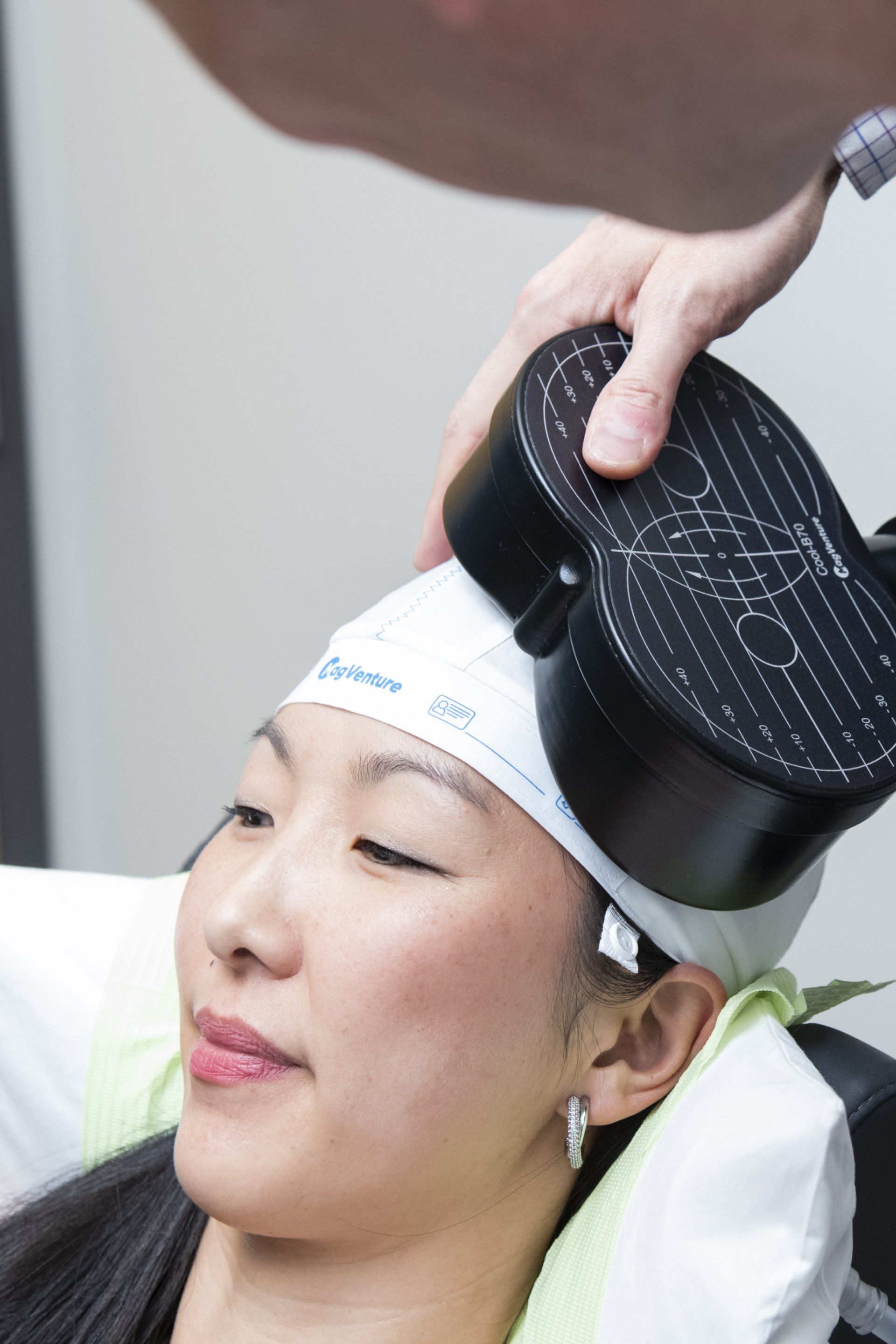
Slide title
Write your caption hereButton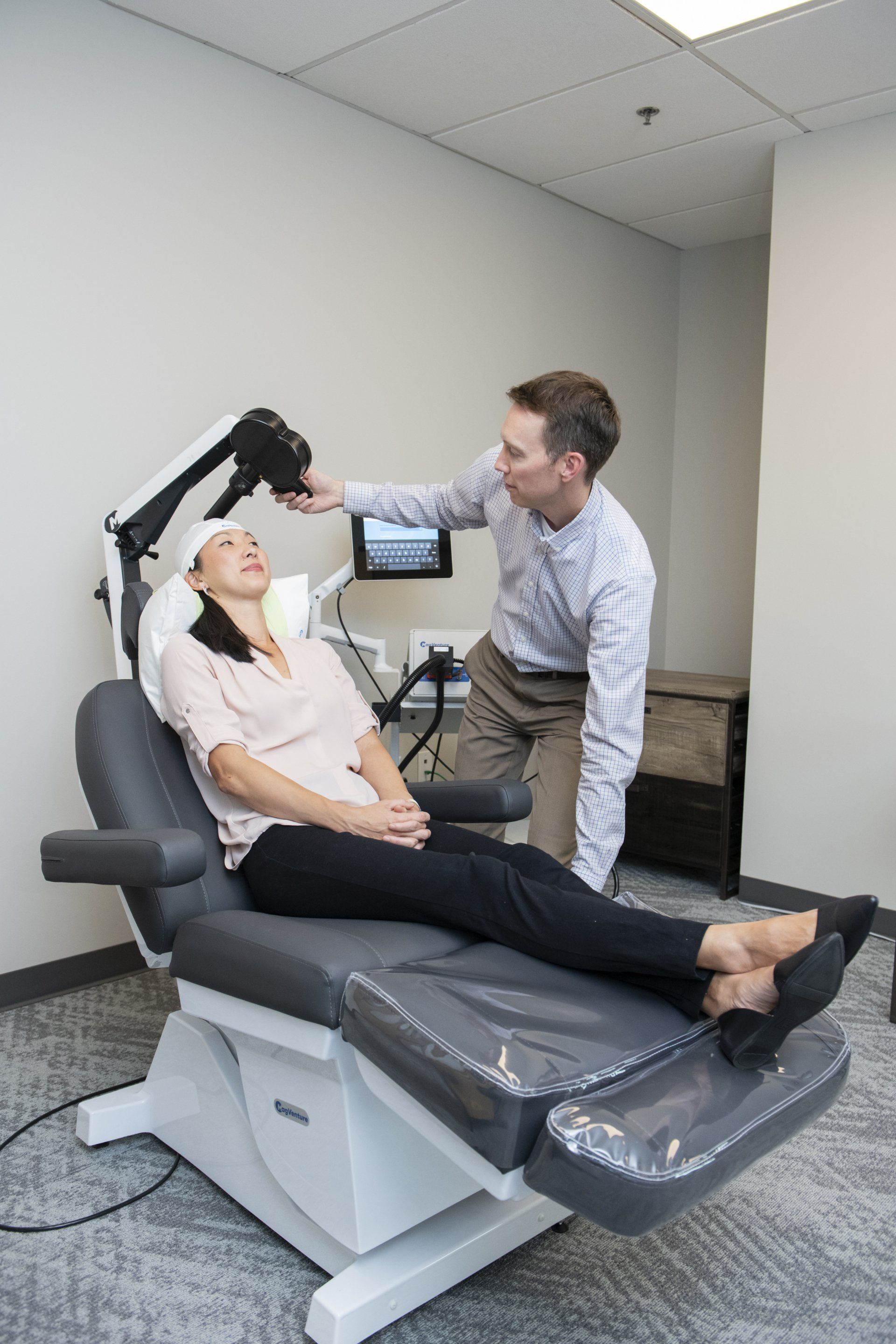
Slide title
Write your caption hereButton
What Makes Us Different
Free TMS Therapy Guides, Quizzes & Phone Consultations

Patient Testimonials
Previous Patients Putting Your Mind At Rest

We have been working together for a few years now. He is always sensitive to my current condition and always trying to get me the most effective solutions with the least amount of side affects.
I feel like he cares about what's going on with me. Took time to listen and helped with my concerns about a medication that I've been on that seems to be causing more weight gain and trouble with weight loss.
the tms journey
A Step By Step Process

Book your free telephone consultation with Dr. Clinch and use this time to ask any questions or voice any concerns about TMS. If there are no contraindications to treatment, you are a good candidate, and you wish to proceed with a full evaluation, we will schedule a full intake. You will be sent an invite to our confidential patient portal and forms for review and completion that expedite care.
Shortly after this, you will be seen in person for the full TMS evaluation. This will provide adequate information for us to then submit prior authorization for TMS coverage to your insurer. If seeking care off-label through self-pay, prior authorization is not needed. We then schedule your first and all subsequent treatment sessions. We obtain prior authorization and inform you of all costs prior to starting care.
Come in for your first treatment which starts with a 'mapping' to establish your unique treatment intensity and location. Following this and at all subsequent sessions, you will recline in a motorized chair, similar to a dental visit. You can then relax, listen to music, watch TV, read or chat during the treatment. At the end of your sessions, you can drive and return to your day as normal.
Samuel B. Clinch, M.D
Medical Director
Our shared inspiration is to alleviate mental illness and improve the mental wellbeing of the patients we treat. We respect all backgrounds and cultures and want to hear our patient’s stories to best guide care. During treatment, we reinforce positive wellness practices, help maximize lifestyle modifications, and integrate rTMS therapy into a patient’s overall mental and physical health treatment.
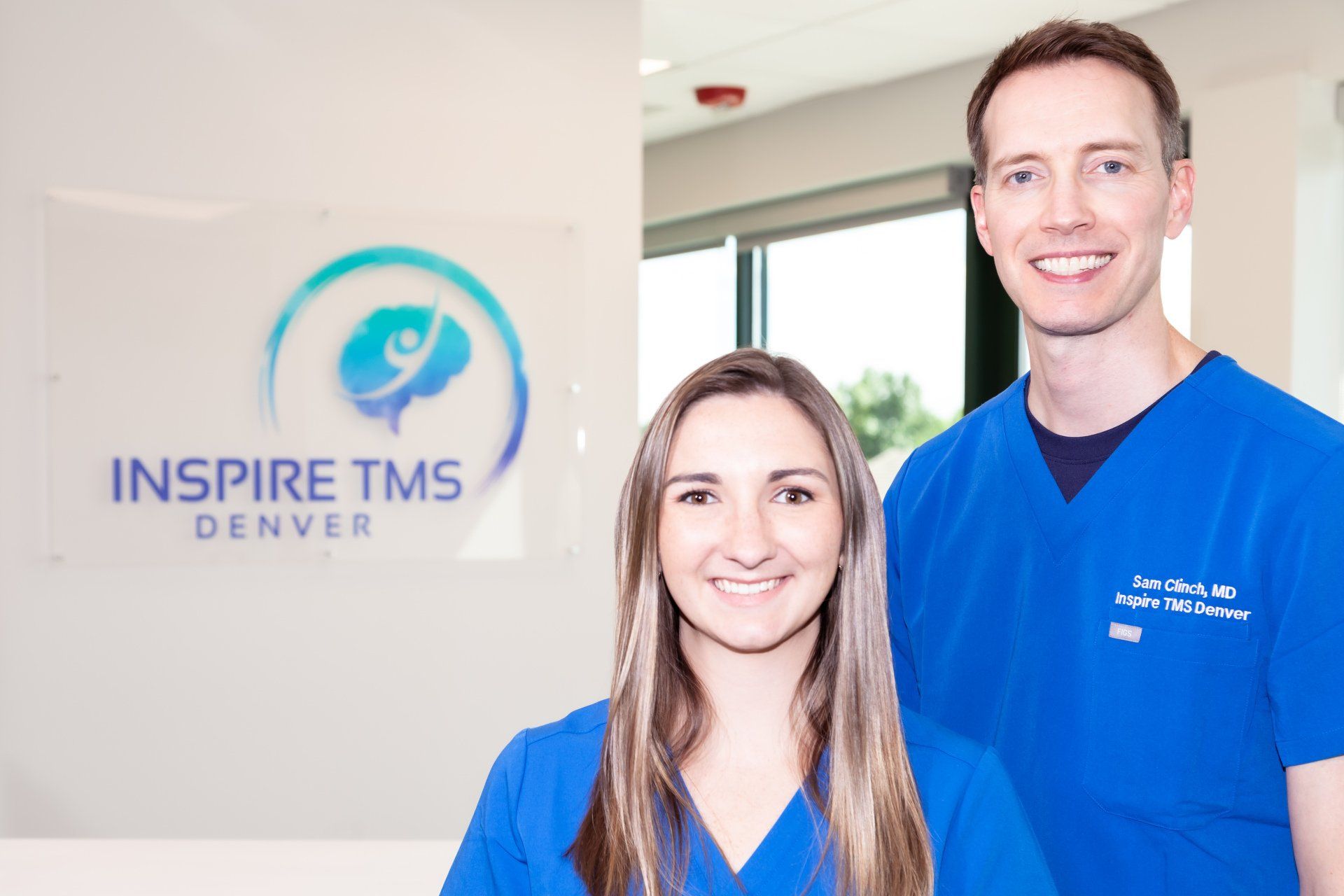

Free Consultation
Call 720-446-8675 now, or complete the form below to request a call back.
Contact Us
We will get back to you as soon as possible.
Please try again later.
Contact Us
LOCATION
340 East 1st Avenue, Suite 333
Broomfield, CO 80020
What Happens After I Send My Message?
A member of our team will confirm your free consultation appointment within one business day.
Discover if TMS is right for you and answer all your queries about treatment, eligibility and costs.
Take the First Step Towards Your Mental Well-being Today
Is TMS the Right Choice For Me?
Before proceeding with the pros and cons of TMS therapy, know that Inspire TMS Denver is here to help. We offer free phone consultations to help determine if TMS treatment is the right choice for you and to ensure that you are well informed as to treatment expectations. The bullet points to follow can hopefully help guide in this decision process. Let’s start with the largest Pros for treatment:
TMS Pros
High Success Rate:
The success rate for TMS therapy is quite high and seems to be steadily improving with advancements in technology and treatment protocols. The primary indication for TMS is Treatment Resistant Depression. This typically describes failure to at least 2 antidepressant medications and therapy. When looking over all the studies and current real-world data from large patient registries, the following are obtainable with TMS:
These are very good results for difficult to treat depression. As noted, most patients utilizing TMS for depression are treatment resistant. This typically involves two or more medication failures. Looking at a patient trying their third medicine due to two previous failures, response and remission rates are only 15-20% at best. When needing further medication trials, the rates only drop further from here.²
Read More: How does TMS work? →
Prolonged Response:
In addition to the initial high response and remission rates, we also see better long-term rates with TMS treatments. Similar to initial response rates, approximately two-thirds of patients at one year follow up continue to see response to treatment. And those that relapse into depression, tend to re-respond very positively to repeat TMS therapy - with more than three-quarters showing repeat response.³ Looking at similar rates for antidepressants, we see the opposite. After one year, only one-third of patients trying their third medication will remain free from depression with two-thirds relapsing back into depression. Reintroduction of medications then only results in 10% or less chance for response and remission.
Read more: TMS therapy success rate and TMS vs medication →
Safe and Non-Invasive:
TMS treatments involve the use of magnetic fields that cross over the scalp and skull safely to change electrical conductivity in the brain. The stimulation only penetrates a few centimeters into the brain, but this influences connected brain circuits deeper in the brain that cause depression and anxiety. The treatment is hence quite targeted and local.
Unlike ECT treatment which actually causes seizures as a means of therapy, TMS is targeted and does not use seizure as a therapeutic treatment. The risk of seizure in the general population is extremely low. Studies have pointed to seizure risk as 1 in 30,000 or more TMS treatments. Seizures that have rarely occurred in the clinical setting are self-limiting and can be managed by staff safely. The treatment does not require anesthesia and can be performed safely and comfortably in an outpatient clinic. There is also no recovery time following TMS therapy, unlike with ECT, where a postictal (post-seizure) state occurs involving general fatigue and memory loss. With TMS, prior to, during, and after treatment, patients are awake, alert, and capable of going about their normal day-to-day activities. There are no driving restrictions following treatment or limitations of any sort.
Read more: TMS vs ECT →
No Systemic Side Effects:
Because TMS is so targeted, it avoids the common side effects that can occur with antidepressant medication. TMS will not cause weight gain, sexual side effects, gastrointestinal problems, fatigue, or any of the other side effects that can typically be seen with antidepressants. There can be a slight prickling sensation at the treatment site or a mild headache during the first few treatments in a small portion of patients. These side effects typically resolve after the first week of treatment and can be minimized with the use of a gradual increase in treatment intensity and/or over-the-counter pain medication. Inspire TMS Denver is well versed in addressing these limited side effects. After this, there are NO side effects!
Read More:
TMS vs medication →
Availability:
There are very few contraindications to TMS treatment. TMS is contraindicated for a few populations:
*There are currently studies underway to verify that TMS is safe and effective in pregnancy.*
Cost:
Because of the proven success and safety of TMS, it was first FDA cleared in 2008 and is now accepted by all insurances. You may have additional copays for treatment, but Inspire TMS Denver does the legwork with your insurance to ensure that you are aware of all costs associated with treatment. We also work tirelessly to ensure that treatments are covered by your insurance and have a dedicated billing department with years of experience in TMS. An entire course of TMS therapy is not inexpensive, but cost-effectiveness studies have shown that it can be more cost-effective than repeated medication trials in the long run.
Learn more about this in TMS vs medication in the section on cost.
The primary indication for TMS is Treatment Resistant Depression. As many who have suffered from depression can attest, however, depression often occurs with additional mental health symptoms. Anxiety, Insomnia, PTSD, Obsessive thoughts and behaviors, and many other symptoms and conditions can also be treated with TMS. At Inspire TMS Denver, we do not charge additional fees for these symptoms. We utilize protocols that cater specifically to the patient to ensure we are leveraging all that TMS can offer. We also offer competitive pricing for patients seeking treatment outside insurance coverage or for those where insurance isn’t approved. We offer affordable maintenance treatment cost as well for those that need periodic TMS treatment to keep depression and associated symptoms at bay.
Quick Treatments:
TMS therapy is a time commitment (more on this below in Cons), but with the latest technology, patients can get in and out of the office quickly to get back to their daily lives. The newest TMS treatment is called intermittent Theta Burst Stimulation - iTBS. This protocol has shortened treatment time to just three minutes. In the past, treatments would take 19-40 minutes. We offer theta burst stimulation at Inspire TMS Denver and use the device that was first granted FDA approval for use of this treatment in 2018. Inspire TMS Denver takes great pride in getting patients in the chair promptly, receiving treatments right away, and getting back to their busy lives. We use this treatment for maintenance treatments as well to save time and cost to patients.
Read More: Theta Burst Stimulation →
TMS Cons
Time:
TMS is a time commitment. A full course of TMS typically lasts 6 weeks with a 3-week taper following and requires coming in five days per week to receive treatment. The good news is that TMS therapy is an investment that reaps great dividends, however. What is more important than your mental health and well-being? As many with depression can certainly attest, there are no easy roads to recovery. Why not invest in treatment with the highest likelihood for success? Many patients also find the process of coming in each day supportive and helpful for keeping them focused on recovery. Advancements in treatment have also led to rapid three-minute treatments with iTBS as noted and numerous studies are pointing to great possibilities with Accelerated TMS as well. With Accelerated TMS, the entire course of therapy can be condensed into just five to ten days.
Read More: Accelerated TMS therapy →
Insurance Prior Authorization:
Insurance companies have different criteria for previous treatment that must have been tried prior to authorizing TMS. For some, this is failure to four medication trials or intolerance to four medications and course of counseling. Some only require two med failures, however. The good news is that Inspire TMS Denver is well versed in this process and has a great prior authorization and billing team that is familiar with each insurer's requirements and how to effectively and consistently get authorization for treatment.
Read More:
TMS therapy cost →
Mild Temporary Side Effects:
Some patients report mild headaches and scalp discomfort or a prickling sensation during the treatment. This can be treated with a standard over-the-counter analgesic and usually disappears after the first few sessions. The stimulation intensity can also be lowered and gradually titrated up to the target dose over the first week of treatment to provide time to adjust to the stimulation. This is very rarely a barrier to treatment and some patients have actually fallen asleep during treatment. This isn’t a goal for treatment as we want the brain in an awake and resting state, but it speaks to the minor level of discomfort that can occur. Read more: TMS Myths vs Facts →
Low Seizure Risk:
As noted above, TMS is not recommended if there is a history of, or condition, that predisposes someone to seizures. For patients without any previous seizure, the risk is extremely low, at only 1 in every 30,000 or more treatments. This risk for seizure is actually on par or lower than with use of most antidepressants and other mood altering medications.
| PROS | CONS |
|---|---|
| High Response and Remission Rates | Time Commitment |
| Cost-Effective Long Term | Temporary and Mild Side Effects |
| Targeted/Non-systemic Treatment | Low Risk of Seizure |
| No major or prolonged side effects | Insurance Coverage Limitations |
| FDA Approved | Accessibility to Treatment |
| Medical Insurance Covers Most Costs | Lack of Public Awareness |
TMS Therapy at Inspire TMS Denver
In quick summary, here are some of the highlights for TMS treatment:
At Inspire TMS Denver, we are here to educate and guide you to the right treatment. We take into account all the pros and cons for TMS therapy and make sure it is the right next step in your treatment path. We want to ensure it meets your expectations and that it fits squarely with all your other treatments. More questions about Pros and Cons of TMS Therapy or other information on this page? Please contact us here to see about a free consultation.


Slide title
Write your caption hereButton
Slide title
Write your caption hereButton
Slide title
Write your caption hereButton
What Makes Us Different

Patient Testimonials
Previous Patients Putting Your Mind At Rest
We have been working together for a few years now. He is always sensitive to my current condition and always trying to get me the most effective solutions with the least amount of side affects.
I feel like he cares about what's going on with me. Took time to listen and helped with my concerns about a medication that I've been on that seems to be causing more weight gain and trouble with weight loss.
the tms journey
A Step By Step Process
Book your free telephone consultation with Dr. Clinch and use this time to ask any questions or voice any concerns about TMS. If there are no contraindications to treatment, you are a good candidate, and you wish to proceed with a full evaluation, we will schedule a full intake. You will be sent an invite to our confidential patient portal and forms for review and completion that expedite care.
Shortly after this, you will be seen in person for the full TMS evaluation. This will provide adequate information for us to then submit prior authorization for TMS coverage to your insurer. If seeking care off-label through self-pay, prior authorization is not needed. We then schedule your first and all subsequent treatment sessions. We obtain prior authorization and inform you of all costs prior to starting care.
Come in for your first treatment which starts with a 'mapping' to establish your unique treatment intensity and location. Following this and at all subsequent sessions, you will recline in a motorized chair, similar to a dental visit. You can then relax, listen to music, watch TV, read or chat during the treatment. At the end of your sessions, you can drive and return to your day as normal.
Our shared inspiration is to alleviate mental illness and improve the mental wellbeing of the patients we treat. We respect all backgrounds and cultures and want to hear our patient’s stories to best guide care. During treatment, we reinforce positive wellness practices, help maximize lifestyle modifications, and integrate rTMS therapy into a patient’s overall mental and physical health treatment.
Samuel B. Clinch, M.D
Medical Director
Free Consultation
Call 720-446-8675 now, or complete the form below to request a call back.
Contact Us
We will get back to you as soon as possible.
Please try again later.
Contact Us
LOCATION
340 East 1st Avenue, Suite 333
Broomfield, CO 80020
What Happens After I Send My Message?
A member of our team will confirm your free consultation appointment within one business day.
Discover if TMS is right for you and answer all your queries about treatment, eligibility and costs.
Take the First Step Towards Your Mental Well-being Today
Is TMS the Right Choice For Me?
Before proceeding with the pros and cons of TMS therapy, know that Inspire TMS Denver is here to help. We offer free phone consultations to help determine if TMS treatment is the right choice for you and to ensure that you are well informed as to treatment expectations. The bullet points to follow can hopefully help guide in this decision process. Let’s start with the largest Pros for treatment:
TMS Pros
High Success Rate:
The success rate for TMS therapy is quite high and seems to be steadily improving with advancements in technology and treatment protocols. The primary indication for TMS is Treatment Resistant Depression. This typically describes failure to at least 2 antidepressant medications and therapy. When looking over all the studies and current real-world data from large patient registries, the following are obtainable with TMS:
These are very good results for difficult to treat depression. As noted, most patients utilizing TMS for depression are treatment resistant. This typically involves two or more medication failures. Looking at a patient trying their third medicine due to two previous failures, response and remission rates are only 15-20% at best. When needing further medication trials, the rates only drop further from here.²
Read More: How does TMS work? →
Prolonged Response:
In addition to the initial high response and remission rates, we also see better long-term rates with TMS treatments. Similar to initial response rates, approximately two-thirds of patients at one year follow up continue to see response to treatment. And those that relapse into depression, tend to re-respond very positively to repeat TMS therapy - with more than three-quarters showing repeat response.³ Looking at similar rates for antidepressants, we see the opposite. After one year, only one-third of patients trying their third medication will remain free from depression with two-thirds relapsing back into depression. Reintroduction of medications then only results in 10% or less chance for response and remission.
Read more: TMS therapy success rate and TMS vs medication →
Safe and Non-Invasive:
TMS treatments involve the use of magnetic fields that cross over the scalp and skull safely to change electrical conductivity in the brain. The stimulation only penetrates a few centimeters into the brain, but this influences connected brain circuits deeper in the brain that cause depression and anxiety. The treatment is hence quite targeted and local.
Unlike ECT treatment which actually causes seizures as a means of therapy, TMS is targeted and does not use seizure as a therapeutic treatment. The risk of seizure in the general population is extremely low. Studies have pointed to seizure risk as 1 in 30,000 or more TMS treatments. Seizures that have rarely occurred in the clinical setting are self-limiting and can be managed by staff safely. The treatment does not require anesthesia and can be performed safely and comfortably in an outpatient clinic. There is also no recovery time following TMS therapy, unlike with ECT, where a postictal (post-seizure) state occurs involving general fatigue and memory loss. With TMS, prior to, during, and after treatment, patients are awake, alert, and capable of going about their normal day-to-day activities. There are no driving restrictions following treatment or limitations of any sort.
Read more: TMS vs ECT →
No Systemic Side Effects:
Because TMS is so targeted, it avoids the common side effects that can occur with antidepressant medication. TMS will not cause weight gain, sexual side effects, gastrointestinal problems, fatigue, or any of the other side effects that can typically be seen with antidepressants. There can be a slight prickling sensation at the treatment site or a mild headache during the first few treatments in a small portion of patients. These side effects typically resolve after the first week of treatment and can be minimized with the use of a gradual increase in treatment intensity and/or over-the-counter pain medication. Inspire TMS Denver is well versed in addressing these limited side effects. After this, there are NO side effects!
Read More:
TMS vs medication →
Availability:
There are very few contraindications to TMS treatment. TMS is contraindicated for a few populations:
*There are currently studies underway to verify that TMS is safe and effective in pregnancy.*
Cost:
Because of the proven success and safety of TMS, it was first FDA cleared in 2008 and is now accepted by all insurances. You may have additional copays for treatment, but Inspire TMS Denver does the legwork with your insurance to ensure that you are aware of all costs associated with treatment. We also work tirelessly to ensure that treatments are covered by your insurance and have a dedicated billing department with years of experience in TMS. An entire course of TMS therapy is not inexpensive, but cost-effectiveness studies have shown that it can be more cost-effective than repeated medication trials in the long run.
Learn more about this in TMS vs medication in the section on cost.
The primary indication for TMS is Treatment Resistant Depression. As many who have suffered from depression can attest, however, depression often occurs with additional mental health symptoms. Anxiety, Insomnia, PTSD, Obsessive thoughts and behaviors, and many other symptoms and conditions can also be treated with TMS. At Inspire TMS Denver, we do not charge additional fees for these symptoms. We utilize protocols that cater specifically to the patient to ensure we are leveraging all that TMS can offer. We also offer competitive pricing for patients seeking treatment outside insurance coverage or for those where insurance isn’t approved. We offer affordable maintenance treatment cost as well for those that need periodic TMS treatment to keep depression and associated symptoms at bay.
Quick Treatments:
TMS therapy is a time commitment (more on this below in Cons), but with the latest technology, patients can get in and out of the office quickly to get back to their daily lives. The newest TMS treatment is called intermittent Theta Burst Stimulation - iTBS. This protocol has shortened treatment time to just three minutes. In the past, treatments would take 19-40 minutes. We offer theta burst stimulation at Inspire TMS Denver and use the device that was first granted FDA approval for use of this treatment in 2018. Inspire TMS Denver takes great pride in getting patients in the chair promptly, receiving treatments right away, and getting back to their busy lives. We use this treatment for maintenance treatments as well to save time and cost to patients.
Read More: Theta Burst Stimulation →
TMS Cons
Time:
TMS is a time commitment. A full course of TMS typically lasts 6 weeks with a 3-week taper following and requires coming in five days per week to receive treatment. The good news is that TMS therapy is an investment that reaps great dividends, however. What is more important than your mental health and well-being? As many with depression can certainly attest, there are no easy roads to recovery. Why not invest in treatment with the highest likelihood for success? Many patients also find the process of coming in each day supportive and helpful for keeping them focused on recovery. Advancements in treatment have also led to rapid three-minute treatments with iTBS as noted and numerous studies are pointing to great possibilities with Accelerated TMS as well. With Accelerated TMS, the entire course of therapy can be condensed into just five to ten days.
Read More: Accelerated TMS therapy →
Insurance Prior Authorization:
Insurance companies have different criteria for previous treatment that must have been tried prior to authorizing TMS. For some, this is failure to four medication trials or intolerance to four medications and course of counseling. Some only require two med failures, however. The good news is that Inspire TMS Denver is well versed in this process and has a great prior authorization and billing team that is familiar with each insurer's requirements and how to effectively and consistently get authorization for treatment.
Read More:
TMS therapy cost →
Mild Temporary Side Effects:
Some patients report mild headaches and scalp discomfort or a prickling sensation during the treatment. This can be treated with a standard over-the-counter analgesic and usually disappears after the first few sessions. The stimulation intensity can also be lowered and gradually titrated up to the target dose over the first week of treatment to provide time to adjust to the stimulation. This is very rarely a barrier to treatment and some patients have actually fallen asleep during treatment. This isn’t a goal for treatment as we want the brain in an awake and resting state, but it speaks to the minor level of discomfort that can occur. Read more: TMS Myths vs Facts →
Low Seizure Risk:
As noted above, TMS is not recommended if there is a history of, or condition, that predisposes someone to seizures. For patients without any previous seizure, the risk is extremely low, at only 1 in every 30,000 or more treatments. This risk for seizure is actually on par or lower than with use of most antidepressants and other mood altering medications.
| PROS | CONS |
|---|---|
| High Response and Remission Rates | Time Commitment |
| Cost-Effective Long Term | Temporary and Mild Side Effects |
| Targeted/Non-systemic Treatment | Low Risk of Seizure |
| No major or prolonged side effects | Insurance Coverage Limitations |
| FDA Approved | Accessibility to Treatment |
| Medical Insurance Covers Most Costs | Lack of Public Awareness |
TMS Therapy at Inspire TMS Denver
In quick summary, here are some of the highlights for TMS treatment:
At Inspire TMS Denver, we are here to educate and guide you to the right treatment. We take into account all the pros and cons for TMS therapy and make sure it is the right next step in your treatment path. We want to ensure it meets your expectations and that it fits squarely with all your other treatments. More questions about Pros and Cons of TMS Therapy or other information on this page? Please contact us here to see about a free consultation.
In This Guide
Featured Reviews
-

“We have been working together for a few years now. He is always sensitive to my current condition and always trying to get me the most effective solutions with the least amount of side affects.”
- Andre D.
MashIt 
"I feel like he cares about what's going on with me. Took time to listen and helped with my concerns about a medication that I've been on that seems to be causing more weight gain and trouble with weight loss."
FabuFit
“Dr. Clinch is very professional, kind and courteous. I never feel rushed with any of my appointments with him. Dr. Clinch listened to my concerns and gave great feedback. The phone appointment was very convenient!”
YesSuits
What happens during my first and subsequent TMS therapy sessions?
TMS, utilizes magnetic fields or pulses to stimulate electrical connections within the brain.
Some mothers experience postpartum depression after birth. TMS is demonstrating very effective outcomes.
Free Consultation
What Happens After I Send My Message?
- A member of our team will confirm your free consultation appointment within one business day.
- Discover if TMS is right for you and answer all your queries about treatment, eligibility and costs.
Contact Us
We will get back to you as soon as possible.
Please try again later.
Is TMS Right For You?
We believe rTMS is an underutilized treatment approach. It is safe, non invasive, free of systemic side effects and well tolerated. Discover if TMS is right for you by taking the quiz or booking a consultation.


Slide title
Write your caption hereButton
Slide title
Write your caption hereButton
Slide title
Write your caption hereButton
What Makes Us Different

Patient Testimonials
Previous Patients Putting Your Mind At Rest
I cannot say enough good things about Inspire TMS with the treatment, Dr. Clinch, and his staff. The treatment was very effective, helping me climb out of years of depression. Dr. Clinch is extremely knowledgeable, answered all my questions, and was very supportive, as was his staff.
Amazing staff. They do a great job of explaining everything so definitely call if you’re still thinking about it. I had depression that kept me in bed for days. Since the middle of treatment I actually want to do things, and then I’m actually doing them. Completely recommend!
Communication throughout the process was absolutely excellent!! “Bedside manner” from all 3 was excellent. Office was excellent. Just cannot think of anything to critique about process from beginning to end, including pricing! Many thanks!!
For more visit our Google reviews →
the tms journey
A Step By Step Process
Book your free telephone consultation with Dr. Clinch and use this time to ask any questions or voice any concerns about TMS. If there are no contraindications to treatment, you are a good candidate, and you wish to proceed with a full evaluation, we will schedule a full intake. You will be sent an invite to our confidential patient portal and forms for review and completion that expedite care.
Shortly after this, you will be seen in person for the full TMS evaluation. This will provide adequate information for us to then submit prior authorization for TMS coverage to your insurer. If seeking care off-label through self-pay, prior authorization is not needed. We then schedule your first and all subsequent treatment sessions. We obtain prior authorization and inform you of all costs prior to starting care.
Come in for your first treatment which starts with a 'mapping' to establish your unique treatment intensity and location. Following this and at all subsequent sessions, you will recline in a motorized chair, similar to a dental visit. You can then relax, listen to music, watch TV, read or chat during the treatment. At the end of your sessions, you can drive and return to your day as normal.
Our shared inspiration is to alleviate mental illness and improve the mental wellbeing of the patients we treat. We respect all backgrounds and cultures and want to hear our patient’s stories to best guide care. During treatment, we reinforce positive wellness practices, help maximize lifestyle modifications, and integrate rTMS therapy into a patient’s overall mental and physical health treatment.
Samuel B. Clinch, M.D
Medical Director
Free Consultation
Call 720-446-8675 now, or complete the form below to request a call back.
Contact Us
We will get back to you as soon as possible.
Please try again later.
Contact Us
MAIN OFFICE
720-446-8675
LOCATION
340 East 1st Avenue, Suite 333
Broomfield, CO 80020
What Happens After I Send My Message?
A member of our team will confirm your free consultation appointment within one business day.
Discover if TMS is right for you and answer all your queries about treatment, eligibility and costs.
Take the First Step Towards Your Mental Wellbeing Today
Our Services
Learning Hub
Quick Links
Our Services
Learning Hub
Quick Links
Committed
to Your Individual
Care & Recovery
Our Services
Learning Hub
Quick Links
Business Hours
- Monday
- -
- Tuesday
- -
- Wednesday
- -
- Thursday
- -
- Friday
- -
- Saturday
- Closed
- Sunday
- Closed
Find Us
LOCATION
PHONE & FAX
720-446-8675 | 720-798-6969
All Rights Reserved | Inspire TMS Denver
Information on this site is for reference purposes only. It is not intended to be nor should it be taken as medical advice. Individuals should see a medical professional regarding their symptoms.
Website by Leo Cook Digital Marketing
Committed
to Your Individual
Care & Recovery
Business Hours
- Monday
- -
- Tuesday
- -
- Wednesday
- -
- Thursday
- -
- Friday
- -
- Saturday
- Closed
- Sunday
- Closed
Find Us
LOCATION
PHONE
720-446-8675 | 720-798-6969
Information on this site is for reference purposes only. It is not intended to be nor should it be taken as medical advice. Individuals should see a medical professional regarding their symptoms.
All Rights Reserved | Inspire TMS Denver
Website by Leo Cook Marketing
Business Hours
- Monday
- -
- Tuesday
- -
- Wednesday
- -
- Thursday
- -
- Friday
- -
- Saturday
- Closed
- Sunday
- Closed
Find Us
LOCATION
PHONE & FAX
720-446-8675 | 720-798-6969
National Suicide Prevention Lifeline
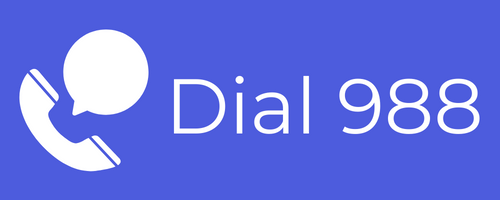

Emergencies Call 911
Receive help 24 hours a day
Information on this site is for reference purposes only. It is not intended to be nor should it be taken as medical advice. Individuals should see a medical professional regarding their symptoms.
All Rights Reserved | Inspire TMS Denver
Website by Leo Cook Digital Marketing

